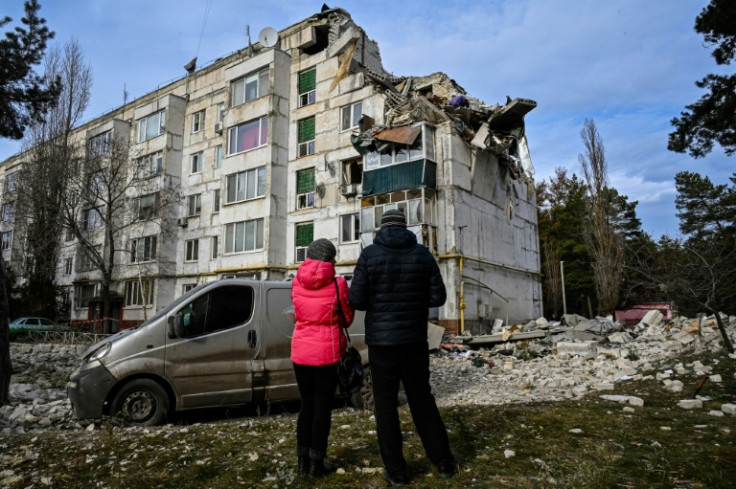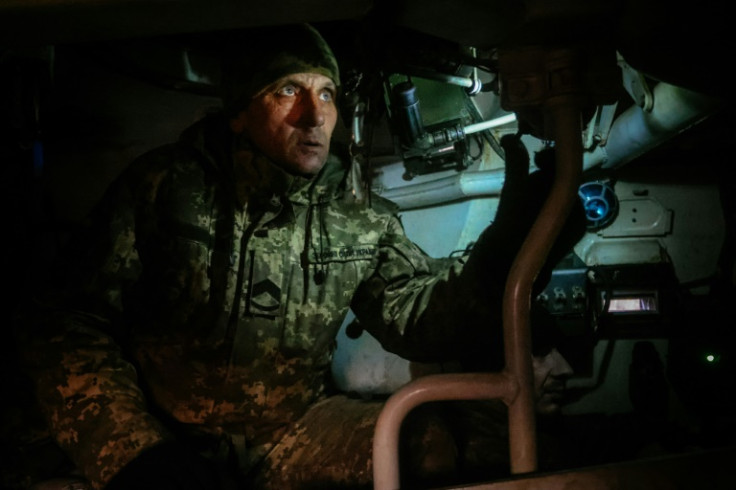EU Strikes Deal On Oil Price Cap To Starve Russia's War Machine

The EU on Friday joined the G7 in agreeing a cap on the price of Russian oil to starve the Kremlin of resources for its Ukraine war, as Vladimir Putin said strikes on Ukraine's infrastructure were "inevitable".
The price cap of $60 per barrel, previously agreed on a political level with the United States and the G7 group of wealthy democracies, will come into effect with an EU embargo on Russian crude oil from Monday.
The embargo will prevent shipments of Russian crude by tanker vessel to the EU, which account for two thirds of imports, potentially depriving Russia's war chest of billions of euros.
Poland had refused to back the price cap plan over concerns the ceiling was too high, before its ambassador to the bloc confirmed Warsaw's agreement on Friday evening, allowing the measure to be made official this weekend.
The Czech presidency of the EU and diplomats from other member states said the deal had been confirmed and that the bureaucratic procedure to bring it into effect was underway.
The price cap is designed to make it harder to bypass the sanctions by selling beyond the EU.
Poland's ambassador to the bloc, Andrzej Sados, also said Brussels would take into account Polish and Baltic state suggestions for a "painful and expensive" ninth round of sanctions against Moscow.
After suffering humiliating defeats during what has become the largest armed conflict in Europe since World War II, Russia began targeting Ukrainian energy infrastructure in October, causing sweeping blackouts.
President Vladimir Putin said Russian strikes on Ukrainian infrastructure were "inevitable", in his first conversation with German Chancellor Olaf Scholz since mid-September.
"Such measures have become a forced and inevitable response to Kyiv's provocative attacks on Russia's civilian infrastructure," Putin told Scholz, according to a Kremlin readout of the telephone talks.
The Kremlin leader referred in particular to the October attack on a bridge linking Moscow-annexed Crimea to the Russian mainland.
During the hour-long call, Scholz "urged the Russian president to come as quickly as possible to a diplomatic solution including the withdrawal of Russian troops", according to the German leader's spokesman Steffen Hebestreit.
Putin urged Berlin to "reconsider its approaches" and accused the West of carrying out "destructive" policies in Ukraine, the Kremlin said, stressing that its political and financial aid meant Kyiv "completely rejects the idea of any negotiations".
Ukrainian President Volodymyr Zelensky had ruled out any talks with Russia while Putin is in power shortly after the Kremlin claimed to have annexed several Ukrainian regions.
The Kremlin also indicated Moscow was in no mood for talks over Ukraine, after US President Joe Biden said he would be willing to sit down with Putin if the Russian leader truly wanted to end the fighting.
"What did President Biden say in fact? He said that negotiations are possible only after Putin leaves Ukraine," Putin's spokesman Dmitry Peskov told reporters, adding Moscow was "certainly" not ready to accept those conditions.
Russia's strikes have destroyed close to half of the Ukrainian energy system and left millions in the cold and dark at the onset of winter.
In the latest estimates from Kyiv, Mykhaylo Podolyak, an adviser to Zelensky, said as many as 13,000 Ukrainian troops have died in the fighting.
Both Moscow and Kyiv are suspected of minimising their losses to avoid damaging morale.
Top US general Mark Milley last month said more than 100,000 Russian military personnel have been killed or wounded in Ukraine, with Kyiv's forces likely suffering similar casualties.
The fighting in Ukraine has also claimed the lives of thousands of Ukrainian civilians and forced millions to flee their homes.
Those who remain in the country have had to cope with emergency blackouts as authorities sought to relieve the pressure on the energy infrastructure.
In an attempt to boost the mood in the capital Kyiv, musicians played a classical music concert on Thursday with hundreds of LED candles lighting up the stage.
She said they wanted to spread "inspiration, light and love" and "tell people that we are not defeated".
Ukrainian officials have said they are expecting a new wave of Russian attacks shortly.


© Copyright AFP 2024. All rights reserved.





















